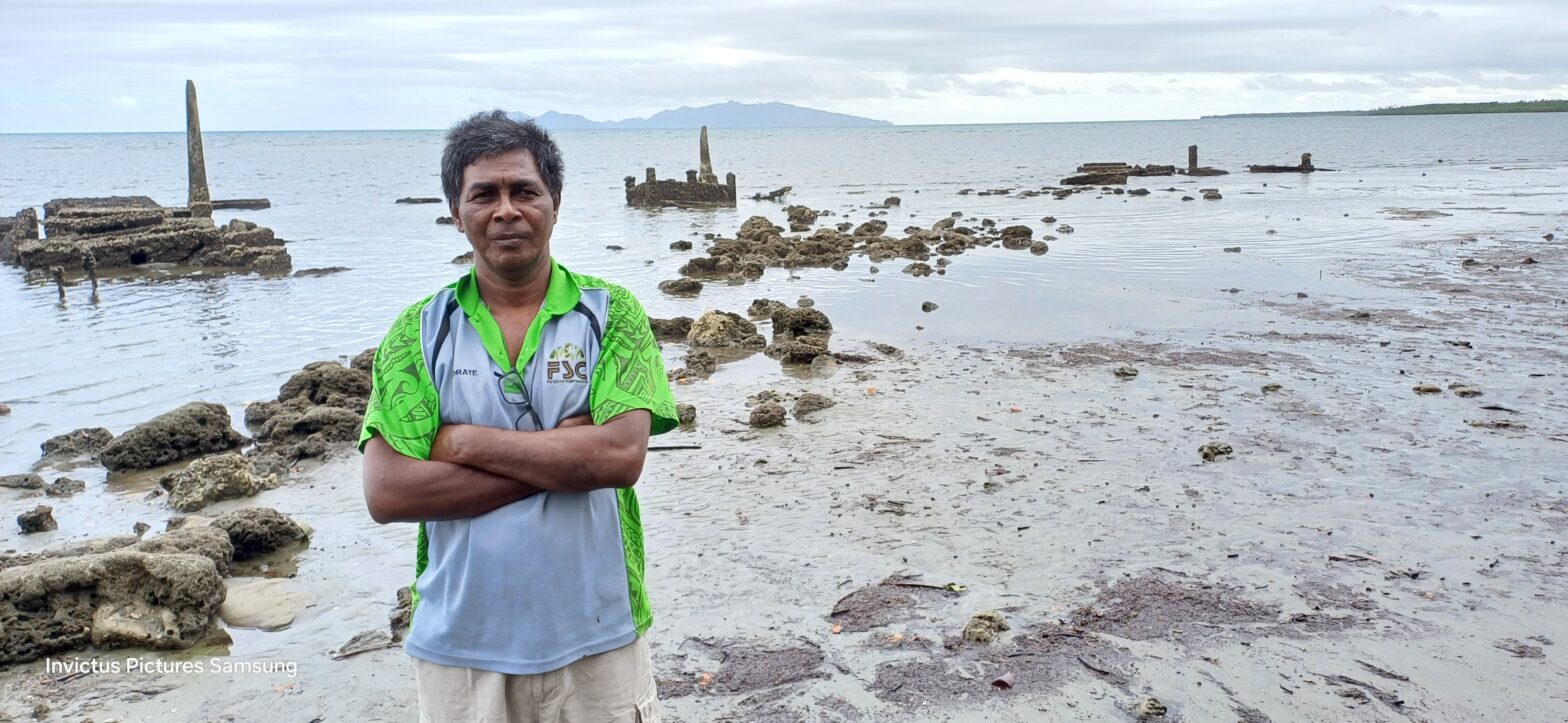A Nature based solution to reduce riverbank erosion in Fiji
A village community along Fiji’s Sigatoka River has lost a large tract of land due to riverbank erosion prompting the government to introduce vetiver grass planting along the country’s main waterways.
Emuri village is situated on the banks of the Sigatoka River on the main island of Viti Levu and was recently the focus of the government’s river rehabilitation programme.
Fiji’s Minister for Agriculture and Waterways, Dr Mahendra Reddy acknowledged that riverbank erosion was a major challenge for Fiji.
He told the Fiji Sun at Emuri village earlier this month, “It was now a race against time to protect our riverbanks across the country and in the last 18 months members of the ministry planted vetiver grass at about 30 rivers. This was done to secure and stabilise the banks of the rivers.”
A single hedge of vetiver grass planted on the outer slope of a riverbank can reduce the wave run-up volume by 55%, differing with sod-forming grasses that give no reduction.
“Climate change is having an impact on our rivers and we are asking that we use nature itself to provide a solution to a problem created by nature. The vetiver grass stabilisation programme is a sustainable solution, it is cheap and it is within our means to carry out.
“We are making a plea to every community and village in this country to take ownership of the river that they have in the community, village and farmland. We are willing to provide you with free planting material for vetiver grass and suggest communities start planting to stabilise the river,” said Dr Reddy.
As part of its commitment, the government has set up three vetiver grass nurseries in Nadi, Nausori and Labasa.
Emuri village headman Poasa Naulu, speaking to the Fiji Times said the community had been constantly affected by floods for a long time.
“For as long as I can remember, we are a village that is always be affected when there is heavy rain,” he said.
“When that happens, the Tuva crossing is blocked off and people are stranded.
“Children don’t go to school and our people can’t go to work. Over the past few years, we have seen even more flooding and the Tuva River becoming even wider.
“People have lost their farms and some homes had to be moved.
“We pray that this solution will help us because we have been through a lot and we need to address this problem,” said Mr Naulu.
Vetiver grass was first introduced to Fiji from India late in the 1800s. Although it was commonly used to stabilize embankments, terraces and to delineate farm boundaries, its application as a soil conservation measure as we know it today was developed early in the 1950s.



